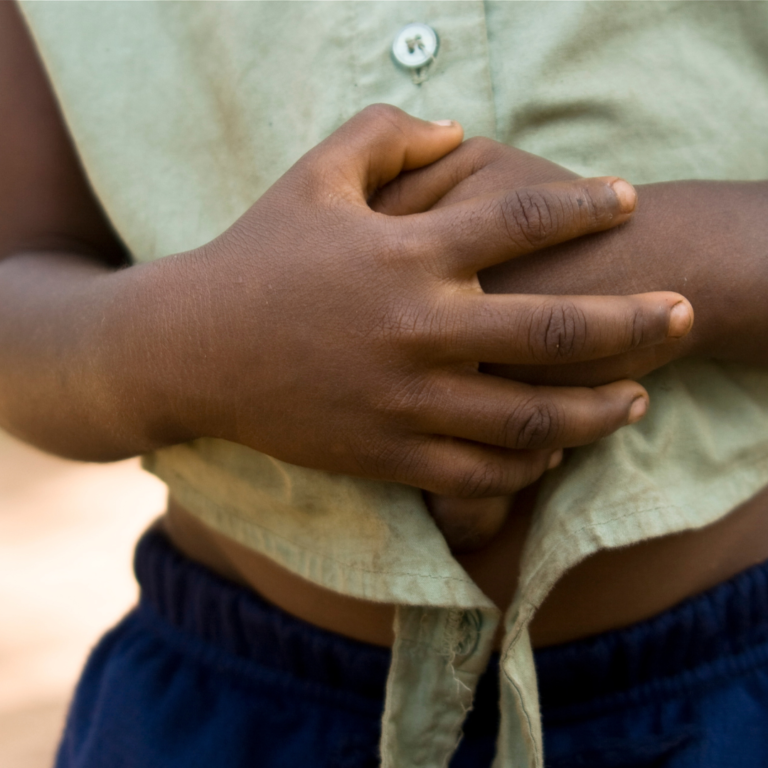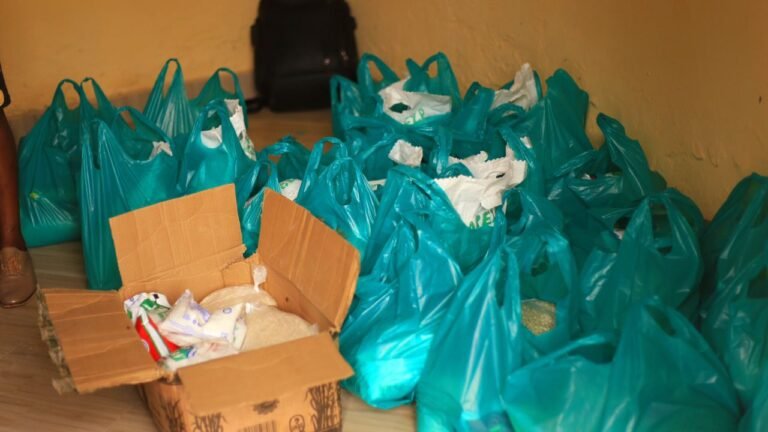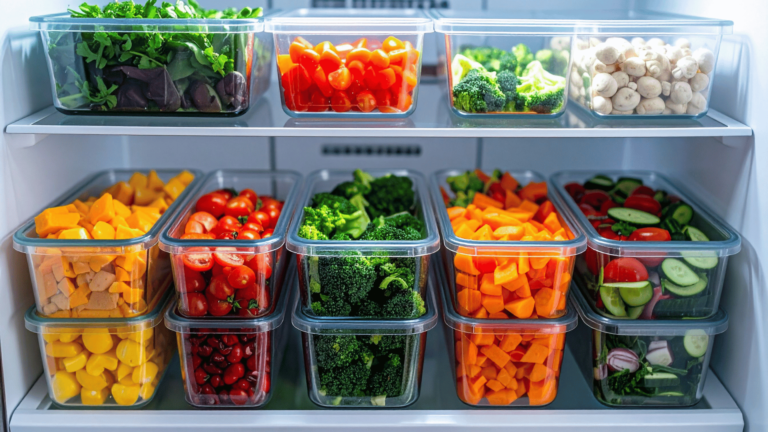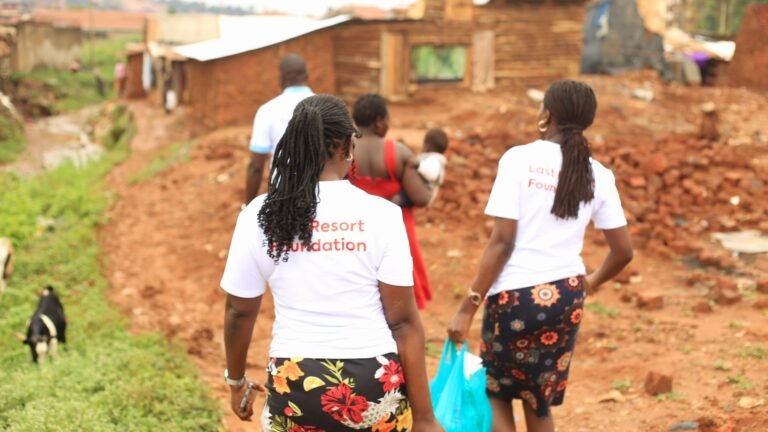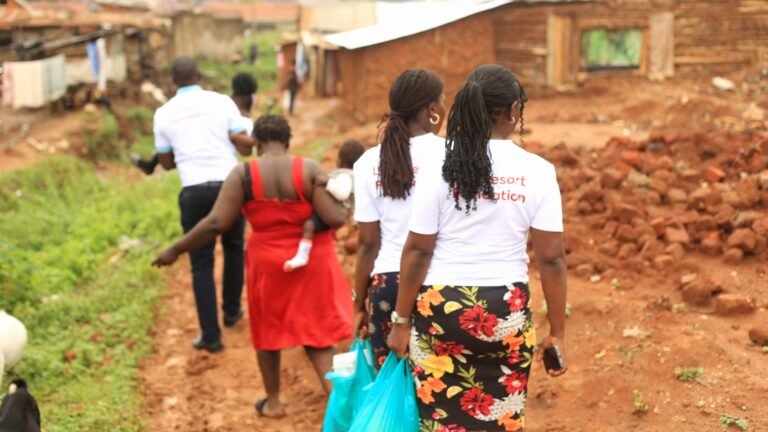Teaching Children About Food Waste. Practical strategies for home, school, and community.
In Uganda, where agriculture is a cornerstone of livelihoods, food waste presents a significant challenge. From farm to plate, a considerable amount of food is lost or wasted due to various factors such as inadequate storage, transportation issues, and consumer habits. While families struggle to put food on the table, perfectly edible food ends up in landfills, contributing to environmental problems and economic losses.
But there’s hope. By educating our children about the value of food, the consequences of waste, and the importance of sharing, we can cultivate a generation that respects resources and builds a more sustainable future. This blog post provides practical strategies for parents, teachers, and community leaders to teach children about food waste and sharing within the Ugandan context.
Understanding the Journey of Food
Help children appreciate where their food comes from. This understanding forms the foundation for valuing food and minimizing waste.
- Farm Visits: Organize trips to local farms or gardens where children can witness the process of growing food firsthand. Let them plant seeds, water crops, and harvest vegetables. This experience connects them to the land and the effort involved in producing food.
- Storytelling: Share stories about the journey of different foods. For example, trace the journey of matooke from the banana plantation to the dinner table. Explain the various stages, from cultivation and harvesting to transportation and preparation.
- Visual Aids: Use pictures, videos, and charts to illustrate the origins of food. Show children how different foods are grown, processed, and packaged.
Cultivating Plate Mindfulness
Encourage children to be mindful of the food on their plates. This involves paying attention to portion sizes, appreciating the flavors, and avoiding overeating.
- Small Portions: Serve children smaller portions and allow them to ask for more if they’re still hungry. This prevents them from feeling overwhelmed by large servings and reduces the likelihood of wasting food.
- Mindful Eating: Encourage children to eat slowly and savor each bite. Ask them to describe the taste, texture, and smell of the food. This helps them appreciate the meal and avoid mindless overeating.
- ‘Thank You’ Ritual: Before each meal, practice a simple ‘thank you’ ritual to express gratitude for the food. This could involve saying a short prayer or simply acknowledging the effort that went into preparing the meal.
Creative Use of Leftovers: Ugandan Style
Teach children how to transform leftovers into delicious new meals. This fosters creativity and reduces food waste.

- Leftover Makeover: Involve children in brainstorming ideas for using leftovers. For example, leftover posho can be fried into crispy cakes, while leftover beans can be used to make bean burgers.
- Creative Recipes: Explore Ugandan recipes that specifically utilize leftovers. For instance, leftover rice can be used to make rice porridge, a popular breakfast dish.
- Proper Storage: Teach children how to properly store leftovers to prevent spoilage. Explain the importance of using airtight containers and refrigerating food promptly.
The Ugandan Culture of Sharing: Ubuntu in Action
Highlight the Ugandan tradition of sharing food with neighbors, friends, and those in need. This reinforces the value of community and compassion.
- Sharing Meals: Organize opportunities for children to share meals with elderly neighbors, orphans, or families facing food insecurity. This could involve preparing a dish together and delivering it to those in need.
- Community Gardens: Establish community gardens where children can grow food and share the harvest with others. This promotes collaboration and ensures that everyone has access to fresh produce.
- Storytelling: Share stories about Ugandans who have demonstrated exceptional generosity and compassion in sharing food with others. This inspires children to emulate these values.
Fun Learning Activities
Food Waste Sorting Game:
Create a game where children sort different types of food waste into categories like compostable, recyclable, and non-recyclable. This teaches them about proper waste disposal methods.
- Materials: Baskets, labels, various food scraps.
- Instructions: Explain the categories. Let children sort. Discuss the importance of composting and recycling.
Grow Your Own’ Project:
Start a small garden or herb garden with children. This allows them to experience the joy of growing their own food and appreciate the value of fresh produce.
- Materials: Seeds, soil, pots, watering can.
- Instructions: Plant seeds, water regularly, observe growth. Discuss the importance of sunlight and nutrients.
Recipe Book Creation:
Encourage children to create their own recipe books featuring creative ways to use leftovers. This fosters creativity and promotes resourcefulness.
- Materials: Notebooks, pens, markers, recipes.
- Instructions: Gather recipes, write instructions, add illustrations. Share the recipe books with others.
Food Waste Audit:
Conduct a food waste audit at home or school to identify areas where food is being wasted. This raises awareness and encourages behavior change.
- Materials: Scale, notebook, pen.
- Instructions: Weigh food waste for a week. Analyze the data. Brainstorm solutions to reduce waste.
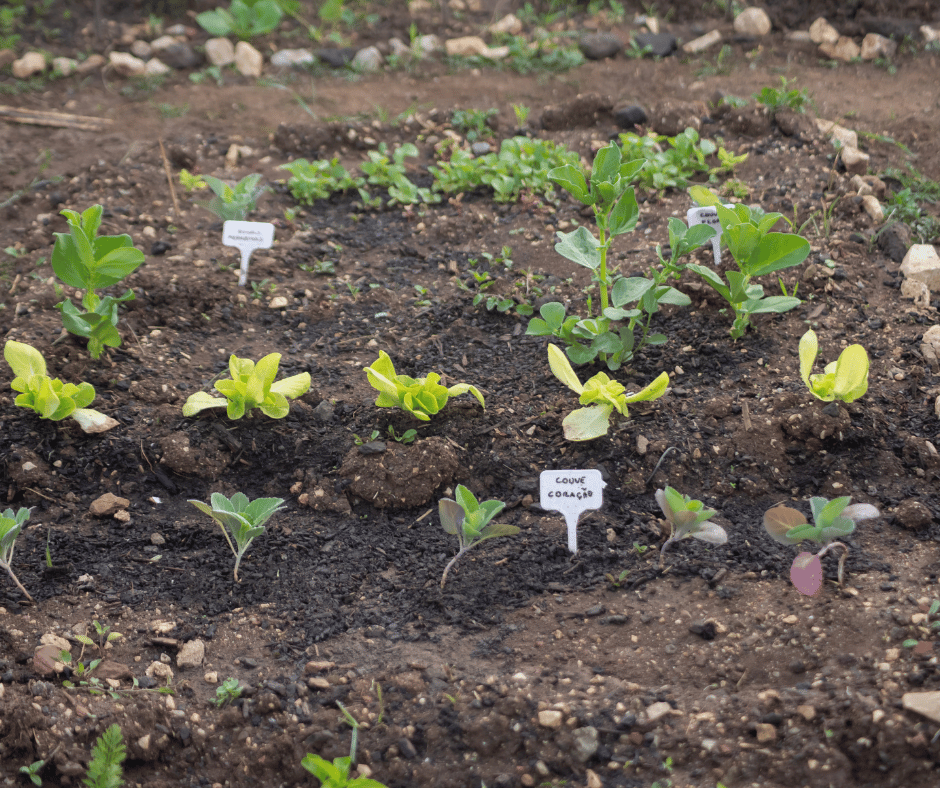
Starting a Home Garden: A Seed of Change
Even a small home garden can have a big impact. It provides fresh, nutritious food, reduces reliance on store-bought produce, and teaches children valuable gardening skills.
- Choosing the Right Plants: Select plants that are well-suited to the Ugandan climate and soil conditions. Consider growing indigenous vegetables like sukuma wiki (collard greens), dodo (amaranth), and eggplants.
- Composting: Teach children how to compost food scraps and yard waste to create nutrient-rich soil for the garden. This reduces waste and improves soil fertility.
- Water Conservation: Emphasize the importance of conserving water when gardening. Use watering cans instead of hoses and water plants early in the morning or late in the evening to minimize evaporation.
By incorporating these strategies into our homes, schools, and communities, we can empower Ugandan children to become conscious consumers, responsible stewards of the environment, and compassionate members of society. Let’s work together to nurture a waste-free generation that values food, reduces waste, and shares with those in need.
Take Action Today!
Ready to make a difference? Here are a few simple steps you can take today:
- Start a conversation: Talk to your children, students, or community members about food waste and sharing.
- Implement one new strategy: Choose one of the strategies outlined in this blog post and put it into practice.
- Share your experiences: Share your successes and challenges with others to inspire them to take action.
Together, we can create a more sustainable and equitable food system for all.


